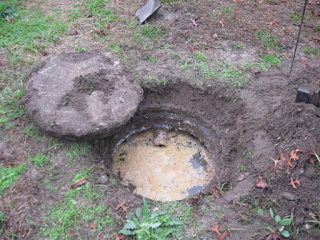I gradually drifted toward wakefulness the other morning. I
rubbed my eyes, and looked at the clock, and rubbed them again. This was later
than I expected.
 I stumbled out the bedroom door, and the cat was standing
next to her food dish, yowling for my attention. The food bowl was empty, and
she is used to being fed earlier than this, thank you very much.
I stumbled out the bedroom door, and the cat was standing
next to her food dish, yowling for my attention. The food bowl was empty, and
she is used to being fed earlier than this, thank you very much.
Later, she stood at the back door, watching the birds on the
patio, and yowled again. I’d like to go out now, and chase some birds, please.
She gave up after I’d ignored her for a while, and wandered down the hall
toward her potty box.
A thought crossed my mind. “Aren’t you glad you’re not
domesticated.” My mind went through some quick acrobatics in response: Me?
Domesticated? Hah!
And then, wait. There was a season when I couldn’t feed
myself. I had to “hold on!” until Sunday, when the pastor would spoon-feed me
the same basic, elementary doctrines that I’d been spoon fed last year.
There was a season when I needed someone else to let me go
outside once in a while. Unless I had assurances from senior Christians, I
couldn’t trust that it was OK to go to things outside the church organization
and church programs.
And there was a season when I needed someone else to change
my potty box, or maybe change my diapers, because – even as an adult Christian
– I couldn’t deal with my sins and failures myself. I always needed someone to
point out to me, “Hey, that’s really not right,” or I always needed to have
people pray for me to get me past some stumbling point. (Don’t go too far:
prayer for one another is wonderful. But to always need others to pray for you to
get past any trial is not a sign of health or maturity!)
So I stood there, watching my cat saunter down the hall
towards the potty box that I’d cleaned out for her, I realized, not all that
long ago, that was me. I had actually spent a good portion of my life
domesticated, needing others to take care of every little thing for my life, as
a human, as a man, and as a Christian.
Suddenly humbled, I nodded my head gratefully. “Yes, Sir.
Yes, I am very grateful I’m not domesticated. Or at least not as domesticated
as I used to be.”


